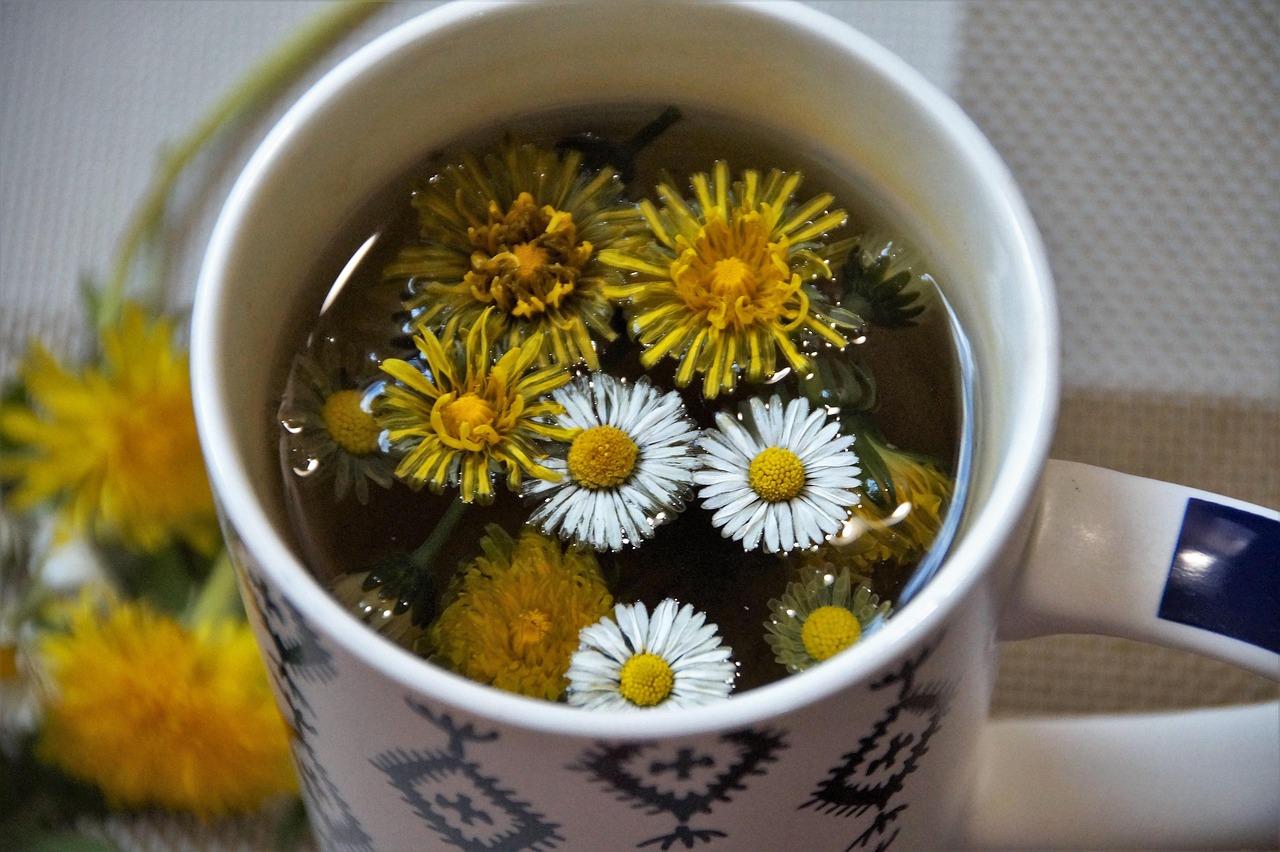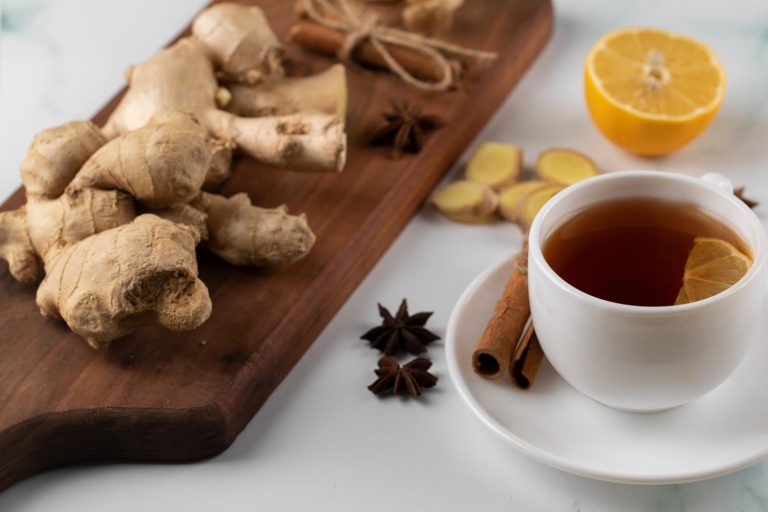Have you ever felt sluggish after a long week of indulgent eating or drinking? I know I have. It’s like my body is pleading for a reset. One of the body’s unsung heroes in this recovery process? The liver. This powerhouse organ does a lot of heavy lifting when it comes to detoxifying our systems. So, why not give it a little extra support? Enter detox teas! These herbal infusions can be a refreshing way to help your liver do its job better.
In this article, we’ll explore five detox tea recipes that not only taste great but also pack a punch when it comes to liver health. Let’s dive in!
Contents
Why Detox Tea for Liver Health?
Before we get into the recipes, let’s chat about why detox tea can be beneficial for liver health. The liver is responsible for filtering toxins, metabolizing drugs, and producing essential proteins. However, it’s also susceptible to damage from overindulgence in alcohol, poor diet, and environmental toxins.
Certain herbs and ingredients in detox teas can help support liver function. For instance, dandelion root has been shown to enhance liver detoxification processes, while milk thistle is known for its protective properties.
A Quick Note on Detoxing
While detox teas can be a helpful addition to your routine, it’s important to approach detoxing with a balanced mindset. Your liver does an incredible job on its own, and extreme detox regimens are often unnecessary and can even be harmful. Always consult with a healthcare provider before starting any new health regimen.
1. Dandelion Root Tea
Ingredients:
- 1 tablespoon dried dandelion root
- 2 cups water
- Honey or lemon (optional)
Instructions:
- Boil the water and add the dandelion root.
- Let it simmer for about 10-15 minutes.
- Strain the tea and sweeten it with honey or lemon, if desired.
Benefits:
Dandelion root is a traditional liver tonic. Studies have indicated that it may enhance bile production, which is crucial for digesting fats and detoxifying the liver (Meyer, 2019).
Pros and Cons:
- Pros: Natural diuretic, may improve digestion.
- Cons: Can cause digestive upset in some individuals.
2. Milk Thistle Tea
Ingredients:
- 1 teaspoon milk thistle seeds
- 2 cups water
- Mint leaves (optional)
Instructions:
- Crush the milk thistle seeds slightly to release their oils.
- Boil the water and add the seeds.
- Simmer for 10-15 minutes and strain. Add mint leaves for extra flavor.
Benefits:
Milk thistle is often hailed for its liver-protective properties. Research suggests it may help regenerate liver cells and reduce inflammation (Saller, 2007).
Pros and Cons:
- Pros: Rich in antioxidants, may help with liver regeneration.
- Cons: Not suitable for individuals with allergies to plants in the Asteraceae family.
3. Turmeric Ginger Tea
Ingredients:
- 1 teaspoon ground turmeric or 1-inch fresh turmeric root
- 1-inch piece of fresh ginger
- 2 cups water
- Black pepper (a pinch)
- Honey (optional)
Instructions:
- Boil the water and add turmeric and ginger.
- Let it simmer for about 10 minutes.
- Add a pinch of black pepper to enhance absorption and strain. Sweeten with honey if desired.
Benefits:
Turmeric contains curcumin, which has anti-inflammatory properties. It may also support liver function by increasing bile production (Hewlings & Kalman, 2017).
Pros and Cons:
- Pros: Anti-inflammatory, may improve digestion.
- Cons: Can cause stomach upset in large amounts.
4. Green Tea with Lemon
Ingredients:
- 1 green tea bag
- 1 cup hot water
- Juice of half a lemon
- Honey (optional)
Instructions:
- Steep the green tea bag in hot water for 3-5 minutes.
- Remove the bag and add lemon juice. Sweeten with honey if desired.
Benefits:
Green tea is rich in catechins, which are antioxidants that can help enhance liver function and reduce fat accumulation in the liver (Kelley, 2016).
Pros and Cons:
- Pros: High in antioxidants, may support weight loss.
- Cons: Contains caffeine, which may not be suitable for everyone.
5. Beetroot and Carrot Detox Tea
Ingredients:
- 1 small beetroot, peeled and chopped
- 1 carrot, chopped
- 2 cups water
- Lemon juice (optional)
Instructions:
- Boil the water and add beetroot and carrot.
- Simmer for about 15 minutes and strain.
- Add lemon juice for a zesty kick.
Benefits:
Beetroot is known for its ability to enhance liver function and detoxification processes. Carrots provide additional nutrients that support overall liver health (Huang, 2020).
Pros and Cons:
- Pros: Nutrient-dense, may improve digestion.
- Cons: Can stain surfaces and clothes.
FAQs
1. How often should I drink detox tea for liver health?
You can enjoy detox teas 2-3 times a week, but listen to your body. If you experience any discomfort, it’s best to dial back.
2. Can detox teas replace a healthy diet?
Nope! Detox teas should complement a balanced diet, not replace it. Whole foods and hydration are essential for liver health.
3. Are there any side effects I should be aware of?
Some herbs may cause digestive upset or allergic reactions. Always consult with a healthcare provider, especially if you’re pregnant or on medication.
4. Can I mix different detox tea recipes?
Absolutely! Feel free to experiment. Just be cautious about combining herbs, as some may interact.
Conclusion
Incorporating detox teas into your routine can be a delicious way to support your liver’s health. From dandelion root to beetroot, these recipes are not only easy to make but also packed with beneficial nutrients.
Remember, while detox teas can aid in liver support, they’re not a magic solution. A balanced diet, regular exercise, and hydration are key. Always consult with a healthcare provider before making significant changes to your health routine.
So, the next time you feel that post-indulgence sluggishness, brew up a cup of one of these detox teas. Your liver will thank you!
References
-
Hewlings, S. J., & Kalman, D. S. (2017). Curcumin: A Review of Its’ Effects on Human Health. Foods, 6(10), 92. https://doi.org/10.3390/foods6100092
-
Huang, Y. (2020). Nutritional Value of Beetroot and its Potential Health Benefits. Nutrients, 12(7), 1901. https://doi.org/10.3390/nu12071901
-
Kelley, D. S. (2016). Green tea catechins and their effects on liver health. Journal of Nutrition, 146(6), 1191S-1196S. https://doi.org/10.3945/jn.115.224434
-
Meyer, G. (2019). Dandelion Root: An Overview of Its Benefits and Effects. Journal of Herbal Medicine, 16, 100-105. https://doi.org/10.1016/j.hermed.2019.02.001
-
Saller, R., et al. (2007). The Use of Milk Thistle in Liver Disorders: A Review. Phytotherapy Research, 21(11), 1079-1091. https://doi.org/10.1002/ptr.2203
This article is for educational purposes only and is not a substitute for professional medical advice. Always consult a qualified healthcare provider before making changes to your health routine.
Get Your FREE Natural Health Guide!
Subscribe now and receive our exclusive ebook packed with natural health tips, practical wellness advice, and easy lifestyle changes, delivered straight to your inbox.





